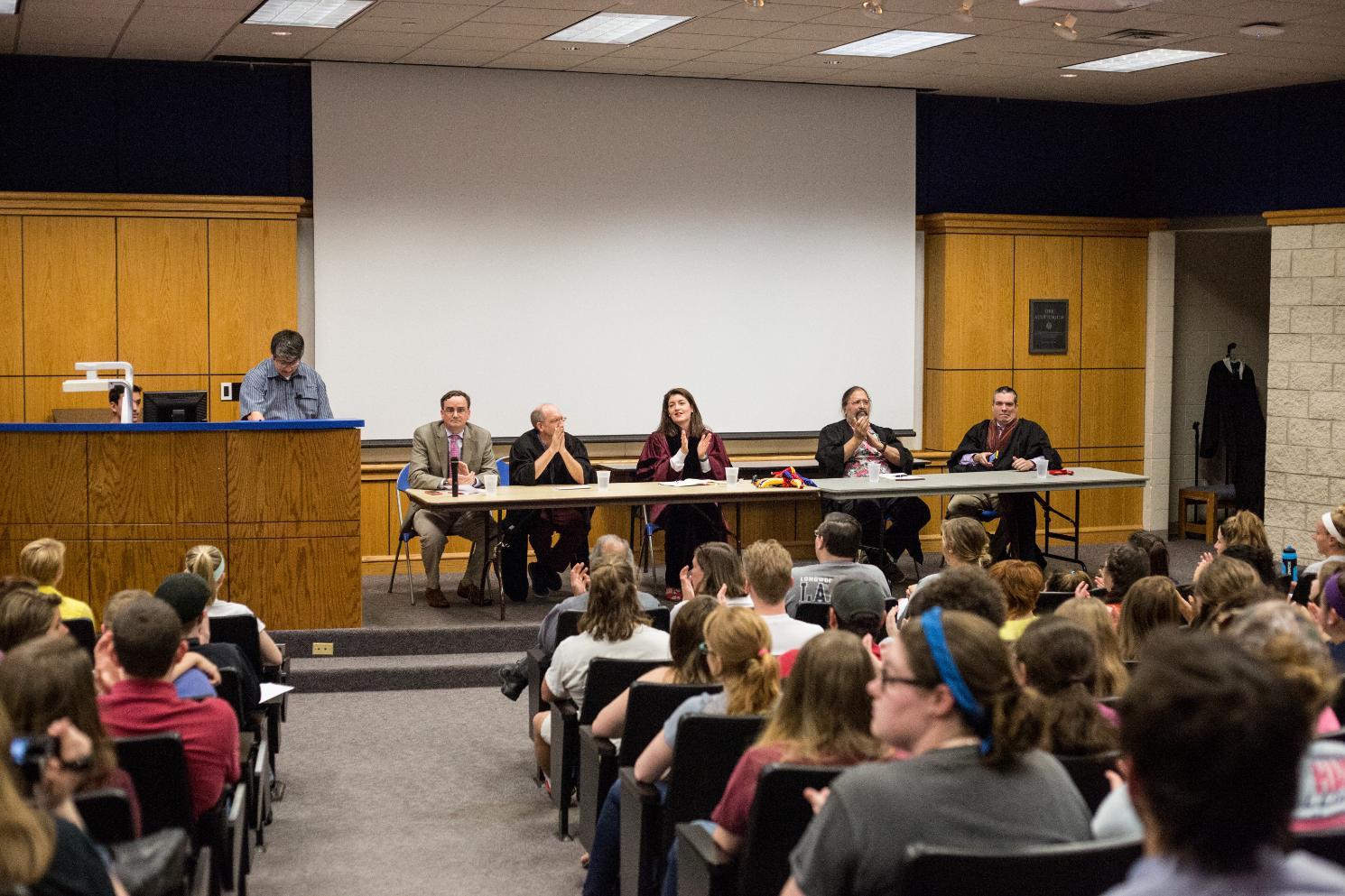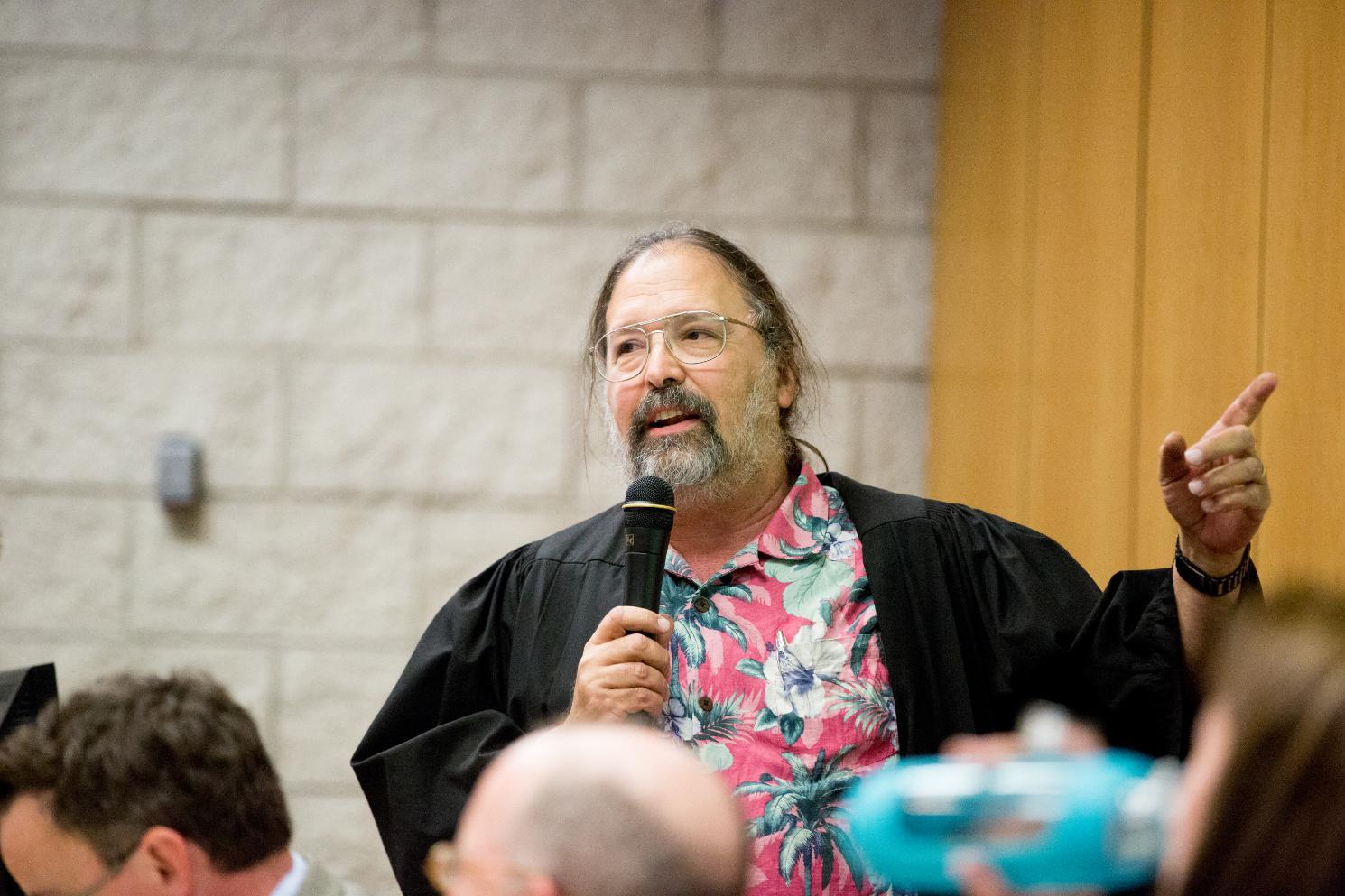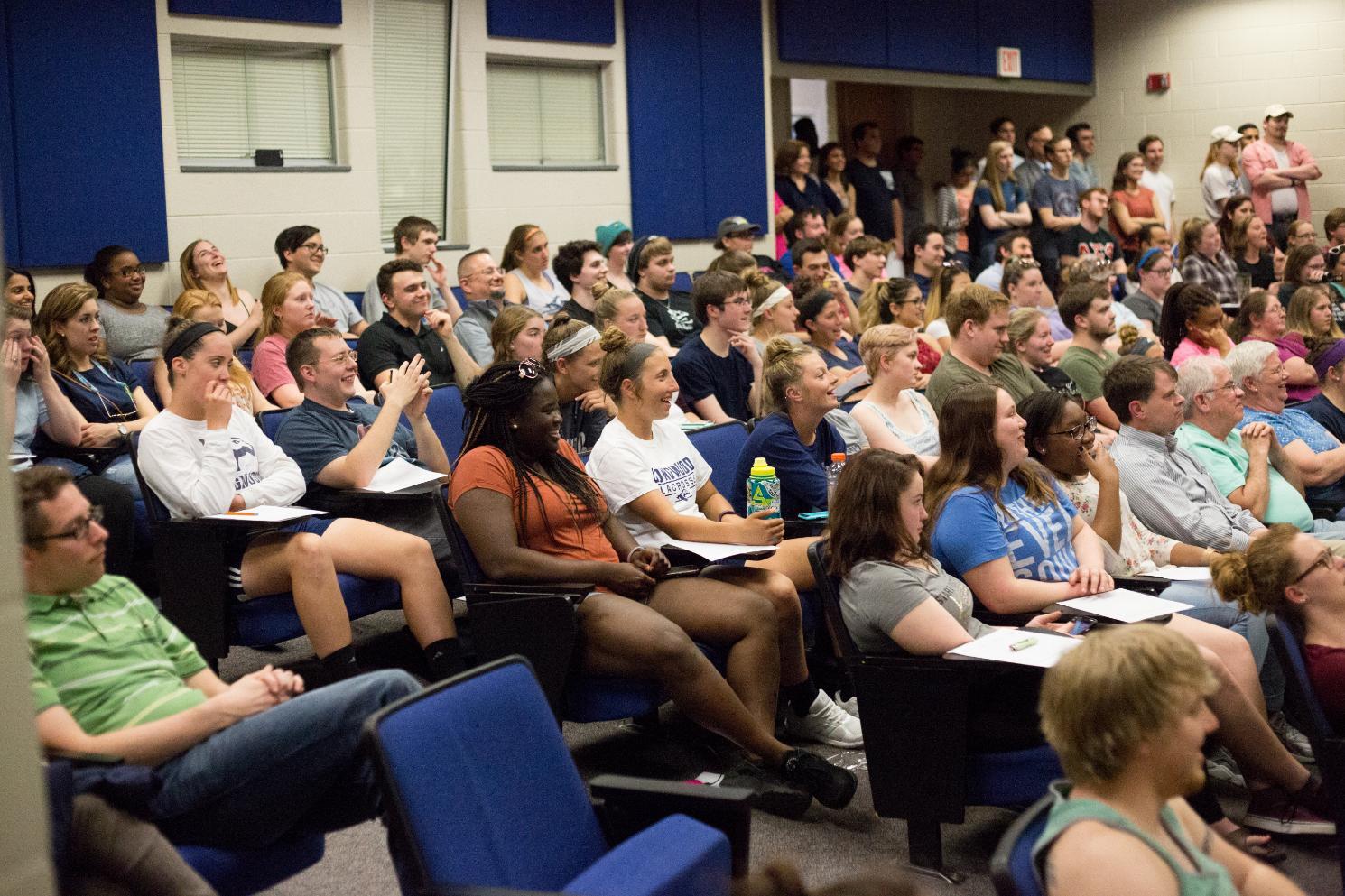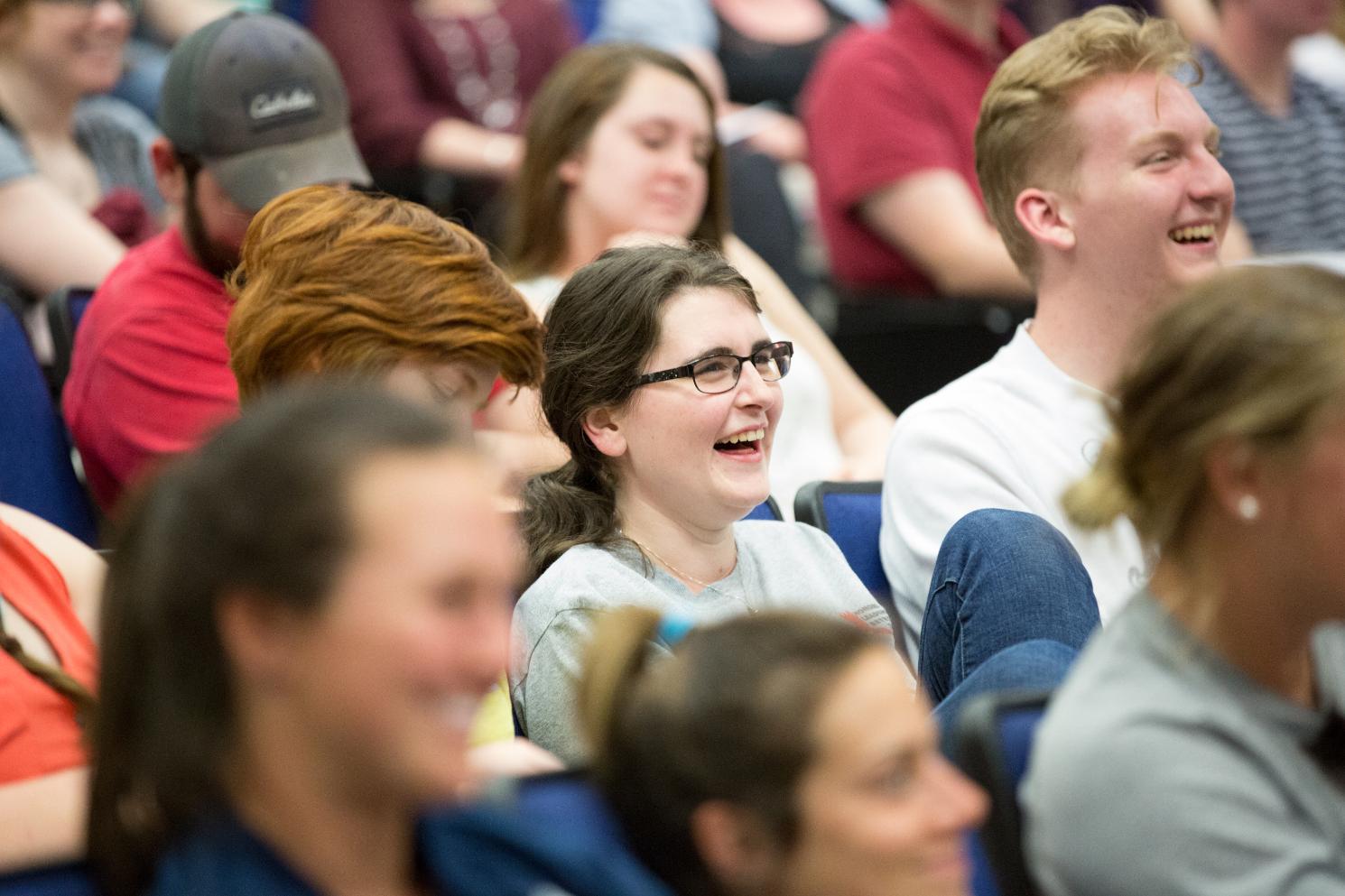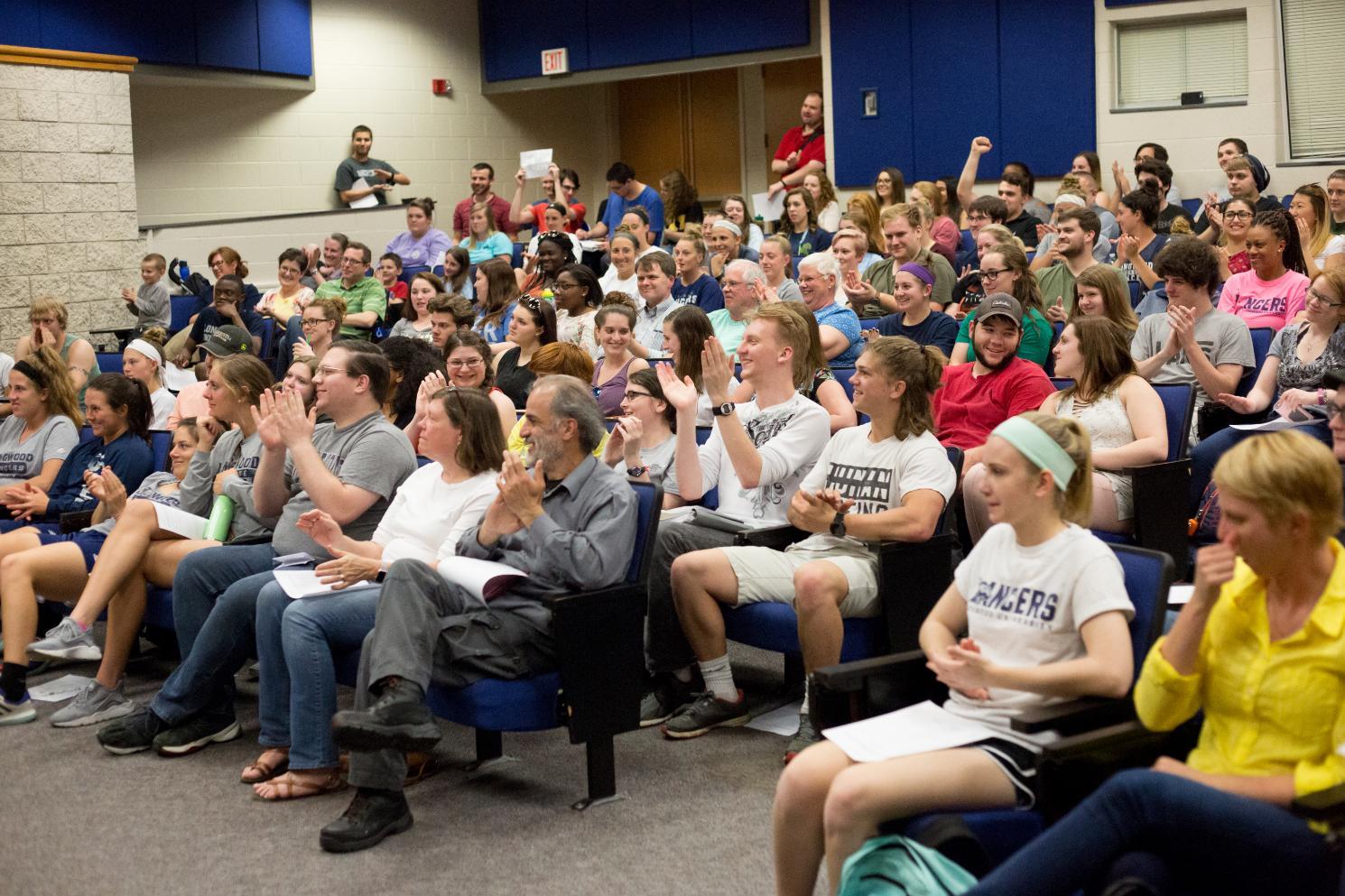
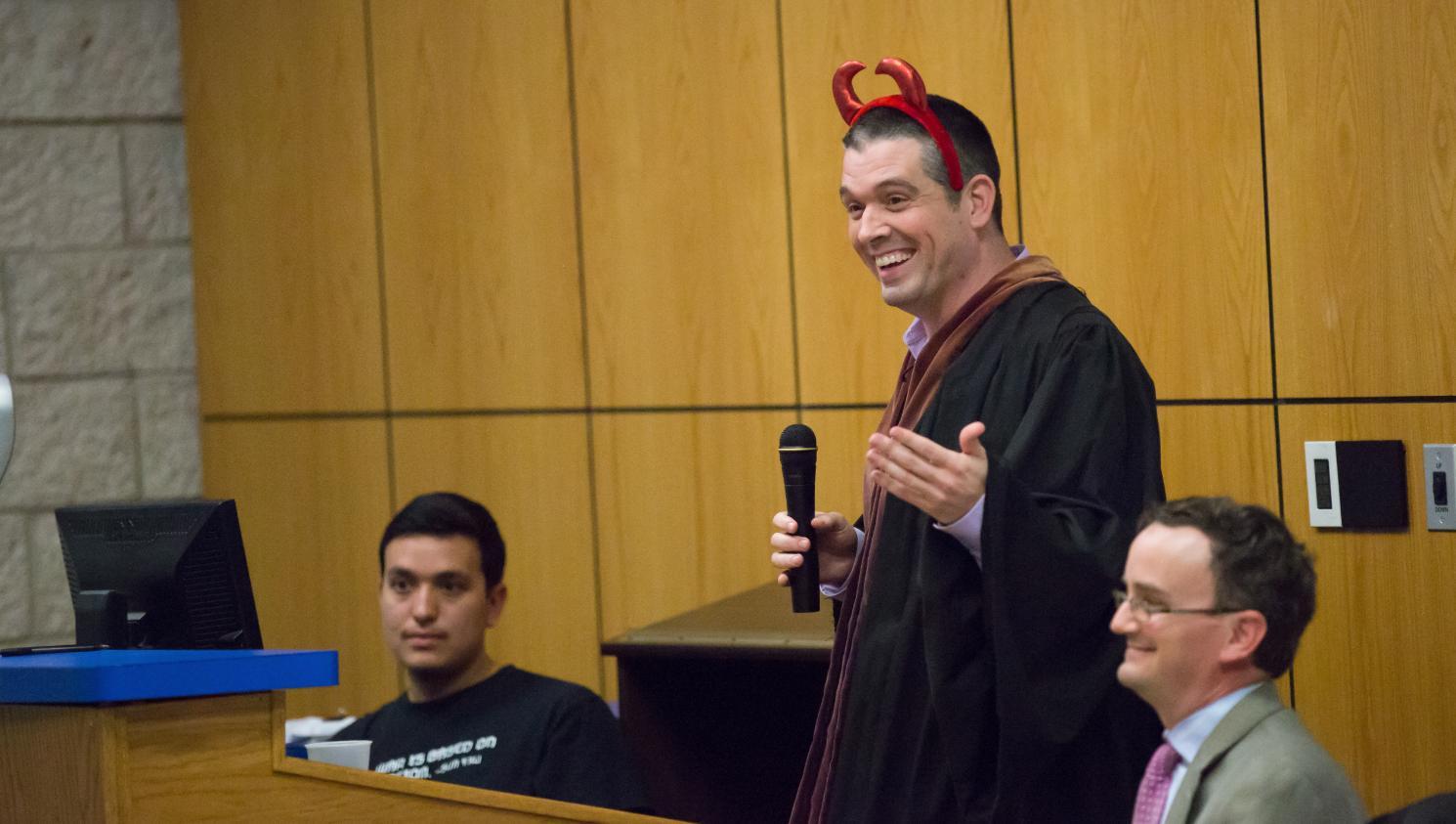
A philosopher, a social scientist and a mathematician are stranded on a raft with enough supplies for only one to survive. Which one—and, by association, which field of study—deserves to make it?
It sounds like the start of an academic joke, and light-hearted humor was certainly involved. But the occasion was real and a fast-growing Longwood tradition: a scholarly “Raft Debate” among some leading faculty before a standing-room-only and slightly raucous crowd of students Wednesday night in Hull Hall.
Longwood professors Robert Marmorstein (math and computer science) and John Miller (English) picked up the idea while graduate students at William & Mary and brought the tradition to Longwood in 2013. Longwood legend Jim Jordan was the featured attraction that year, and every year the event has grown in popularity.
For students, it’s an occasion to hear some favorite professors share what they love about their disciplines—and get in a few good-natured digs at colleagues.
Every year I come away impressed at how talented my colleagues are—not only in their fields but in their ability to engage an audience. Our students are really lucky to have the kind of first-class teaching they get at Longwood.
Dr. Robert Marmorstein, Associate Professor of Computer Science
The Raft Debate “really showcases the caliber of our faculty,” Marmorstein said. “Every year I come away impressed at how talented my colleagues are—not only in their fields but in their ability to engage an audience. Our students are really lucky to have the kind of first-class teaching they get at Longwood.”
The debates also highlight the value of the liberal arts and sciences. “It’s important for students to not only learn job skills but also to develop a love of learning,” Marmorstein said. “The Raft Debate shows them that thinking about the deep questions can be fun and exciting—and that it’s OK to think about and explore ideas beyond their own disciplines. I think that’s part of the reason so many of them come back year after year.”
At Wednesday’s event, the all-star lineup of Longwood faculty featured philosopher Dr. Eric Moore, representing the humanities; biopsychologist Dr. Catherine Franssen, representing the social sciences; and mathematician Dr. Bill Abrams, going to bat for math and science.
Also on stage was computer scientist Dr. Julian Dymacek, who played the role of devil’s advocate (and even sported costume red horns to fit the part). His task: to persuade the audience that no field had made its case and the best outcome would be to sink all three.
Moore led off with a call to acknowledge that in starting the world from scratch, philosophical questions would stand at the foundation of all other concerns.
It’s important for students to not only learn job skills but also to develop a love of learning. The Raft Debate shows them that thinking about the deep questions can be fun and exciting.
Dr. Robert Marmorstein, Associate Professor of Computer Science
“Philosophy asks all the big important and cool questions that other disciplines don’t get to ask: ‘What is the meaning of life? How should I live my life?’” Moore said. “The problem with math and science is that they only tell us how the world is, not how it should be.”
But Franssen, with assorted props and colorful costumes, told the audience it is social science fields such as economics, political science and psychology that offer rigorous answers to essential problems. Only the social sciences, she said, combine the humanities’ capacity to pose big, fundamental questions with the capacity of the sciences to provide credible answers.
Abrams, to the audience’s amusement, appealed straight to narrow self-interest. “Without math and computer sciences, technology doesn’t exist,” he said. “You got nothing. You’re going to have to give up your cell phones.” Still, he added, the true value of math was not its utility but its beauty.
“I fell in love with math as a teenager not because it’s useful but because it’s pretty,” he said. “Not because it’s in this world but because it’s not really connected to this world.”
But it was Moore—whose areas of expertise include ethical theory, political philosophy and applied ethics—who seemed to win over the room in the rebuttal round, making the case for philosophy to be saved with the exactly the kind of rigorous arguments you might expect from, well, a professional philosopher.
“When any discipline asks questions about itself, there is only one discipline that is still doing its own discipline, and that is philosophy,” Moore said. “When you ask, ‘What is philosophy?’ you’re doing philosophy. When you ask, ‘What is math?’ you’re not doing math. You’re doing the philosophy of math.”
In the end, the audience agreed. After asking for applause for each participant, members of the Longwood University Lectures Committee conferred and agreed Moore had garnered the most support, pronouncing him the winner.
Then everyone retired to the hallway for refreshments. And further debate.

